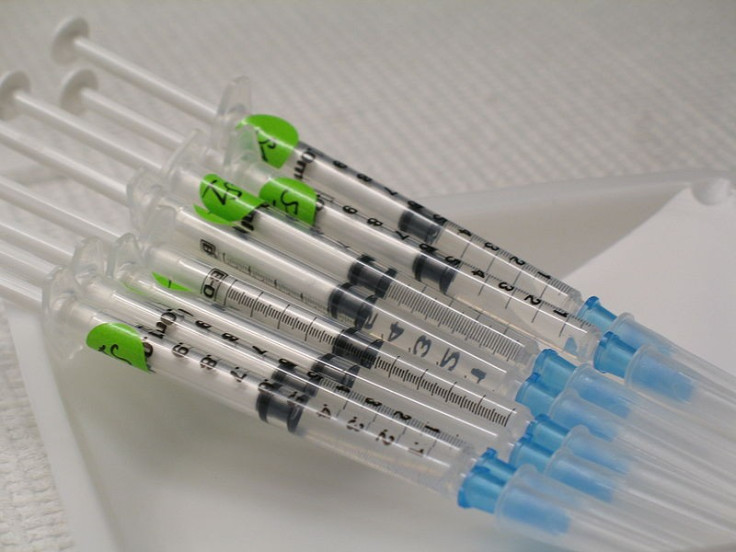Long-Lasting Aids Retroviral Jab Protects Healthy Monkeys From HIV

A new antiretroviral injection that provides longer-lasting protection against contracting the HIV virus in monkeys could lead to a major breakthrough in preventing the spread of Aids in humans.
Two studies by different teams found 100% protection from the contraction of the HIV virus in primates that received monthly injections of the drug, called GSK744 , which could potentially be prescribed as a single injection for humans every three months.
If this success rate is replicated in humans, the issue of healthy people failing to take antiretroviral pills to prevent HIV infection could be eliminated.
The studies and results were presented at the annual Conference on Retroviruses and Opportunistic Infections in Seattle.
A study team at the Aaron Diamond Aids Research Center in Rockefeller University, stated in their report: "GSK744 has the potential the achieve in preventing HIV infection what a long-acting contraceptive has achieved in preventing unintended pregnancies."
This is the most exciting innovation in the field of HIV prevention
Dr Wafaa el-Sadr, an Aids expert at Columbia University's Mailman School of Public Health, told the New York Times a preliminary human trial using GSK744 is set to start later this year. However, treatment in humans could still take years.
Since 2010, it has been proven that healthy people undergoing the procedure of pre-exposure prophylaxis - taking a daily dose of antiretroviral drugs - can experience up to 90% protection against HIV infection.
Pre-exposure prophylaxis is often used by a person whose partner is infected with HIV, in order to prevent them contracting the vius.
However, it's been revealed the only people protected by taking these antiretroviral drugs were those who took their pills daily, without fail.
According to reports, women in Africa have the highest failure rate when it comes to taking the antiretroviral drugs regularly, due to rumours of side effects or the shame of taking pills in front of a sexual partner.
These long-lasting injections of GSK744 could provide a solution to this problem.
At Rockefeller Univerity, the Aids research team led by Dr David Ho tested 16 monkeys with rectal washes of the virus which causes AIDS in primates, effectively simulating anal sex.
None of the monkeys protected by GSK744 was infected.
The Centers for Disease Control and Prevention in Atlanta conducted another study on six female monkeys, who were given monthly injections of a version of GSK744. Six other primates were given a placebo.
The human-simian immunodeficiency virus was pumped into these monkeys twice a week to simulate sex with an infected partner. The six primates who received GSK744 were all protected, while the rest quickly became infected.
Ho stated that the popularity of birth control injections was "a good analogy for how it [the drug] might work in developing countries".
Women in developing countries already receive injections of birth-control hormones which provide longer-lasting protection than pills taken orally each day.
Dr Robert Grant, an Aids expert at the Gladstone Institutes, a foundation affiliated with the University of California, San Francisco, told The Ledger: "This is the most exciting innovation in the field of HIV prevention that I've heard recently."
However, others have questioned the practicality of injections administered over a lifetime. Philip Johnson, of the Children's Hospital of Philadelphia in Pennsylvania, told Science Magazine: "This is going to require multiple injections over the lifetime of an individual. How feasible is it truly in the long term?"
© Copyright IBTimes 2024. All rights reserved.






